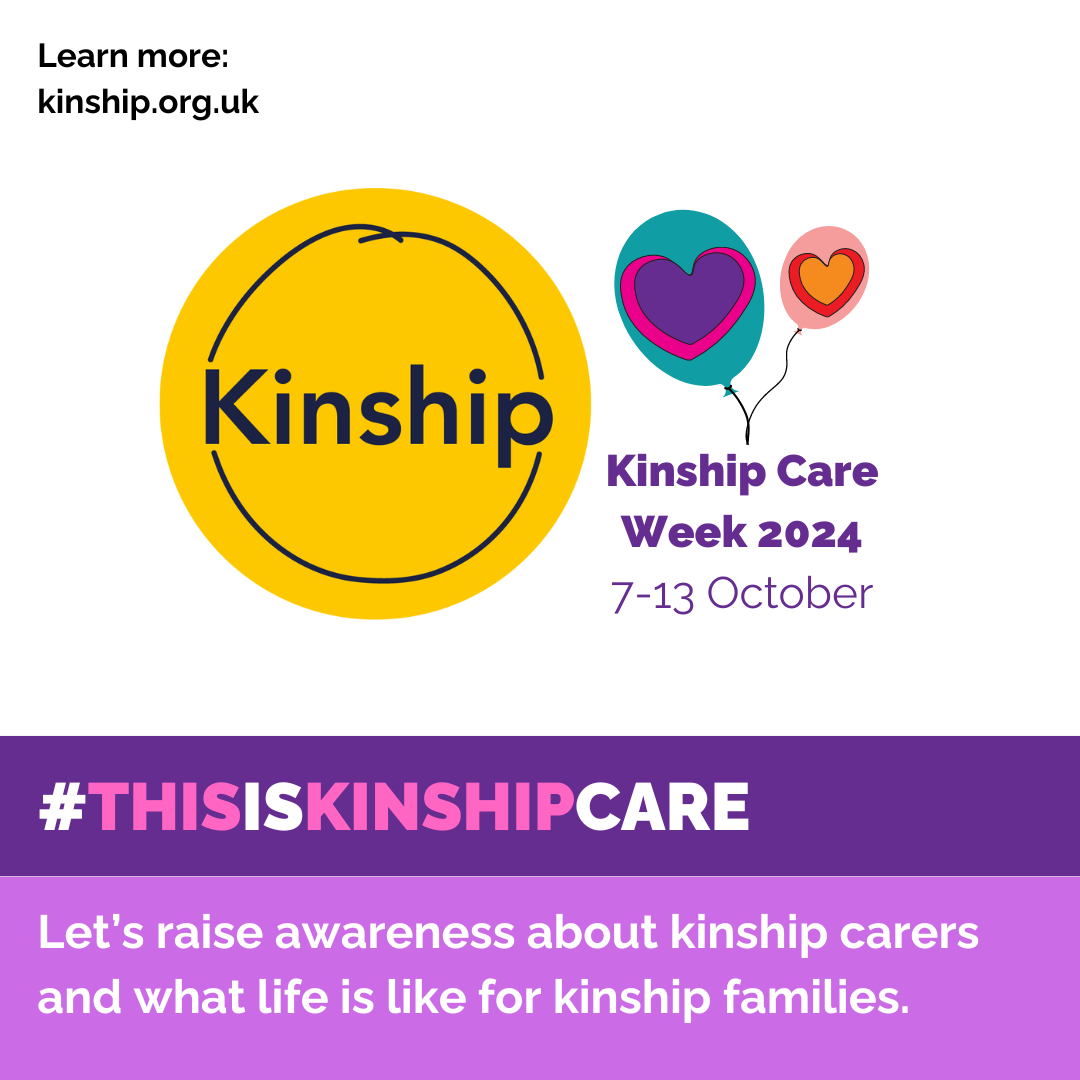
How do we help people understand what kinship care is?
The theme of this year’s Kinship Care Week - #ThisIsKinshipCare - provides an opportunity to help everyone understand more about kinship care. The data from the 2021 census suggests there are 141,000 children living in kinship care in England and Wales. Do we feel sure that people understand what living in kinship care means? Kinship families are diverse, and each family is unique, but both the children and the carers often have commonalities. We know that many of the children need to recover from loss, separation or trauma, and many of the carers are grandparents, aunts and uncles, siblings, cousins, family friends, who have unexpectedly become kinship carers to protect a child they love.
It is important that we all have a shared understanding of what kinship care is – from politicians and policy makers, to our neighbours and friends – so that kinship families feel seen, heard and understood.
As one contribution to raising awareness of kinship care, CoramBAAF and the Kinship Care Alliance worked with Coram Life Education to co-produce new kinship care educational materials, including assembly and lesson plans. We want any child living in kinship care to feel that school is a safe place where they can talk about their family, if they wish, and to feel understood.
Kinship Care Week is also an opportunity to celebrate the incredible role kinship carers play in children’s lives and society. Many local authorities host events as a way to say thank you to kinship carers for all that they do. Last week I attended an afternoon tea party for kinship carers in my previous local authority, where it was humbling to watch videos and hear stories from kinship families, and to witness the emotion in the room. Some kinship carers spontaneously spoke out about how much they valued the support of their dedicated local authority kinship care team, talking about relationships with social workers and support workers that had enabled them to navigate the often difficult journey of becoming a kinship family and caring for a child who’s experienced loss and trauma.
Kinship Care Week 2024 has started, but as local authorities, it’s never too late to think of ways to say thank you to kinship carers or to help children in kinship care to feel seen and understood. It’s not too late to send an invitation for a tea party in a few weeks’ time, or to send an extra newsletter thanking kinship carers, showcasing your local support offer and signposting them to national support services. You could also talk to your Virtual School colleagues and ask them to promote Coram Life Education’s materials to ensure another child will feel safe to share their family life at school.
When Kinship Care Week ends, CoramBAAF is also delighted to be hosting our first-ever Kinship Conference to shift the focus onto learning from policy and practice, to enable local authorities to provide the best services for kinship families in their area. It’s already sold out, but join the waiting list now to receive information about last-minute places or other ways to engage in the learning from the event!
Ann Horne, Kinship Consultant, CoramBAAF
